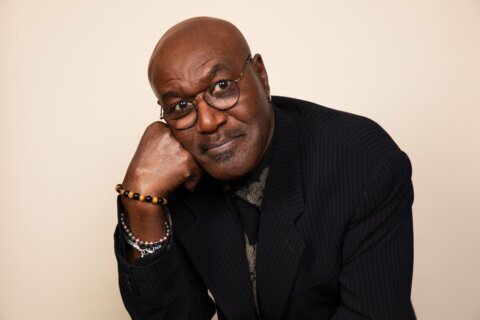Hear our full chat on my podcast “Beyond the Fame with Jason Fraley.”
Every Thanksgiving, America watches the Detroit Lions on TV.
That means for 10 glorious years from 1989-1998, we got to watch Barry Sanders, arguably the greatest running back to every play the game who shockingly hung it up at age 31 just before breaking Walter Payton’s all-time rushing record.
His uniquely fascinating, thrilling and puzzling career is chronicled in the new NFL Films documentary “Bye Bye Barry,” which premiered on Amazon Prime Video on Tuesday just in time to stream it over Thanksgiving weekend.
WTOP caught up with Executive Producer Ken Rodgers, who is also a Vice President at NFL Films.
“I’m not sure what Barry was made of; I don’t think it was bone, muscle, ligaments and joints, because they would break on a normal human being if you moved the way Barry moved,” Rodgers told WTOP. “He was impossible to hit and bring down. You needed five people to tackle him … and that is if you got your hands on him! You would take one step while he took three steps around you and was past you before you even realized that he was there.”
The documentary’s tagline is “the greatest mystery in sports history,” asking why Sanders retired early, allowing Emmitt Smith to break the rushing record in 2002 with a far better offensive line on the Dallas Cowboys. The film insists that the signs were there all along if you followed Barry’s career from high school in Wichita, Kansas to college at Oklahoma State University, where he still holds the record for rushing yards in a season (2,628).
“What it really is at the heart of it is who he always was,” Rodgers said. “He’s always been this way from his childhood when he refused to set a rushing record, to the Heisman [Trophy] when he was embarrassed to win it, to his pro career when he refused to set [rookie rushing] records, to his retirement when he could have been the all-time leading rusher and decided not to. … It’s a revelation of a type of person that not many of us are.”
Indeed, the film provides a lesson in humility that shined every Sunday. After scoring a video game-style touchdown, Barry would humbly hand the ball to the ref instead of celebrating. This approach was instilled by his father, who insisted that Barry would always be the third greatest running back after himself and Jim Brown.
“There were two Sanders drafted early in that draft: Barry Sanders and Deion Sanders,” Rodgers said. “Deion was one of the best corners of all time … but I think of him crossing the goal line with his hand behind his head and high stepping. Barry was the opposite. You can’t think of him celebrating, because he never did. … As soon as he crossed the goal line, he would stop, walk, give the ball to the ref and walk back to the sideline.”
As actor Jeff Daniels says in the film, “It was the first time I ever heard the phrase ‘act like you’ve been there before.'” Other celebrity interviews include Eminem, Tim Allen, Jamele Hill, Jalen Rose, Dan Patrick, Emmitt Smith and of course Barry Sanders himself, who brunches in London with his grown children as the cameras roll.
“Bringing him back to London as part of the film with his four sons, who just grill him about why he retired and why he left to go to London was the perfect way to look back at that inscrutable decision,” Rodgers said.
When he hung up his cleats, Sanders had compiled 2,000 yards per season for 10 straight seasons, including a 2,000-yard season in 1997. Still, he didn’t care about individual stats; he wanted his team to win, but his Lions only reached the NFC Championship once in 1991, losing to Washington. His frustration with the front office and new head coach Bobby Ross were also actors in Sanders announcing his retirement by fax to his hometown newspaper.
“It was hard to pin him down on the football field — and it was equally difficult to pin him down off the football field,” Rodgers said. “He was very reticent to be in the spotlight. He was not into personal glory, and at the end of his career, he followed through with that personality trait. … No one has ever run like Barry [on the field] and no one has ever run away from the game like Barry. It was a crazy retirement story.”
In the end, the movie makes us examine ourselves as a vain society constantly seeking validation.
“We as Americans secretly do like personal attention, we like personal glory, we want other people to give us validation,” Rodgers said. “We tell our kids to not do that. … Barry lived that credo, yet we didn’t understand him. It just puts a mirror on us a society to say we’re full of it. … It’s a real sociological study of someone who lives the way we say we should live. Shame on us for not understanding Barry Sanders.”
Listen to the full conversation on the podcast below:








